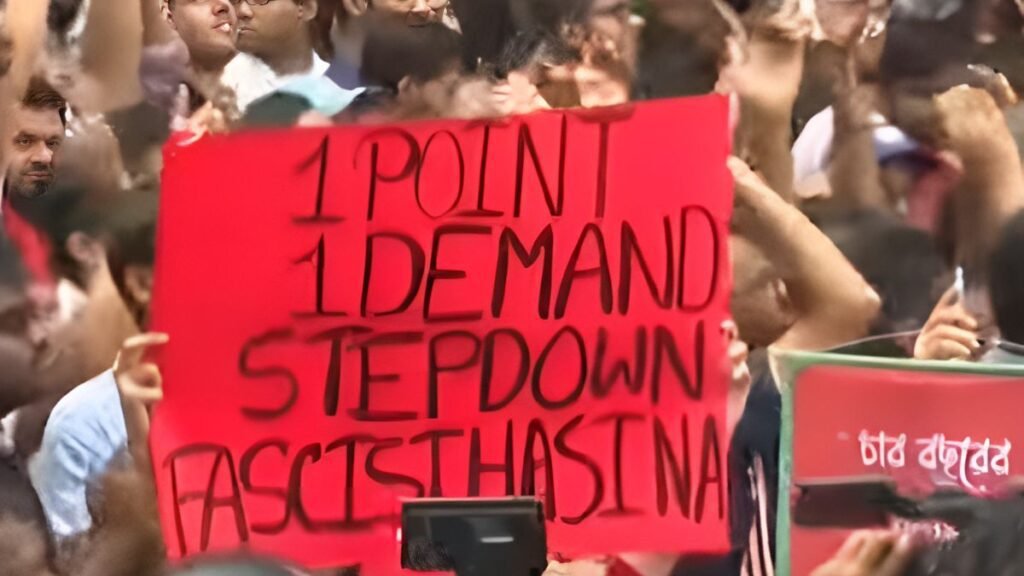At least nine people have been killed in Bangladesh as clashes between police and anti-government protesters intensify. Dozens more have been injured as police employed tear gas and rubber bullets to disperse demonstrators across several parts of the country. In response to the unrest, mobile internet services have been suspended in Dhaka.
Shanewaz Rocky from BBC described the situation as increasingly violent. “I’ve been to different places in Dhaka since morning, and what I’ve seen are tens of thousands of protesters on the streets, blocking various entrances to Dhaka and demanding the government’s resignation. This started as a peaceful protest but quickly turned violent,” Rocky reported.
The protests originally began with students calling for reforms to Bangladesh’s quota system, which reserves government jobs for descendants of freedom fighters. Tensions escalated following a controversial comment by Prime Minister Sheikh Hasina, who questioned who would get the jobs if not the descendants of freedom fighters, igniting anger among students. The pro-government student wing, Chhatra League, allegedly attacked the protesters at Dhaka University, further fueling the violence.
“Within two days of the initial protests, more than 200 people had died in clashes, turning a student movement into a mass movement,” Rocky explained. “I’ve spoken with non-students, including parents and retired individuals, who have joined the protests. They initially thought it was a student movement, but when they saw Chhatra League attacking protesters and students being killed by security forces, they felt compelled to step forward and support the students.”
The mass movement now demands the resignation of the government, far surpassing the initial call for quota system reforms. The situation remains volatile, with reports of clashes and injuries continuing to emerge from various districts across the country.
As the protests show no signs of abating, the international community watches closely, concerned about the potential for further escalation and loss of life in Bangladesh.

